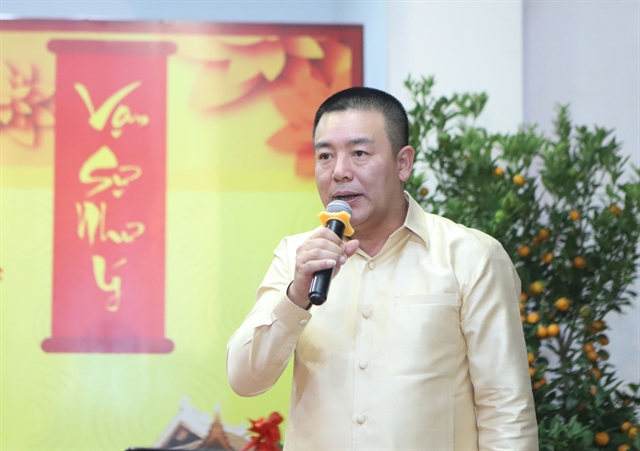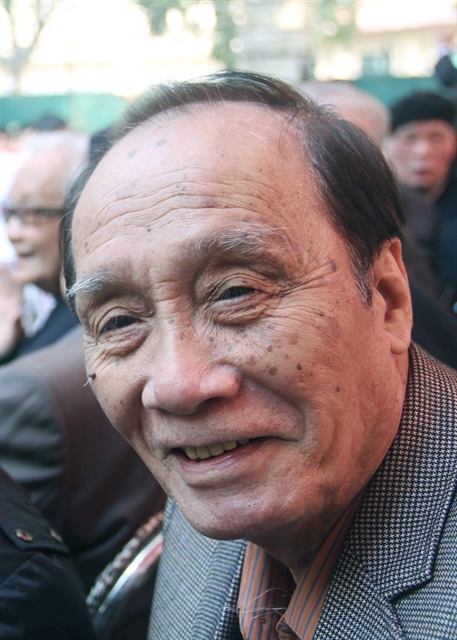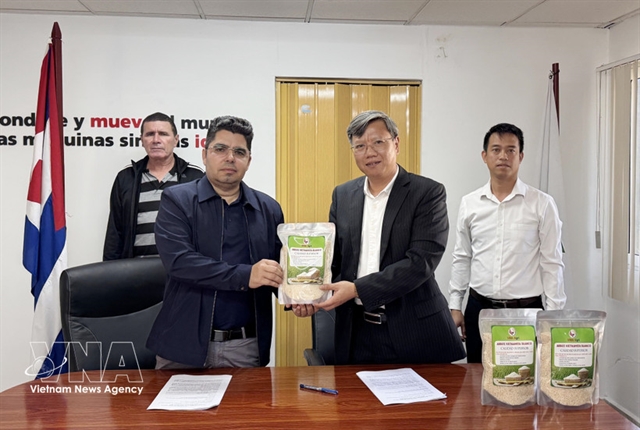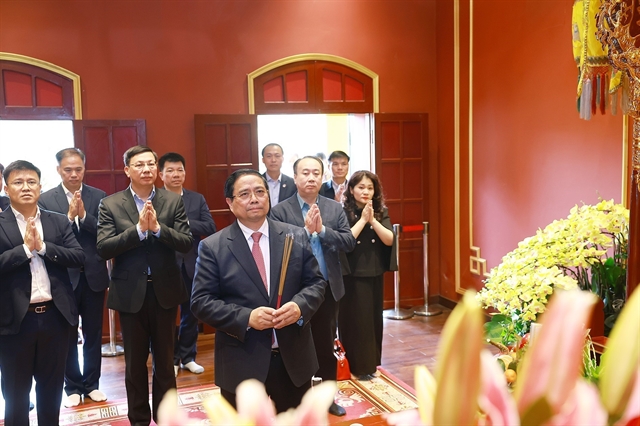 Life & Style
Life & Style

 |
HÀ NỘI - On this beautiful autumn day with the sun shining, Hà Nội bids farewell to one of its own - loyal, talented and a freedom fighter spirit: Maestro Chu Minh, 93, composer of some of the most powerful pieces of music that touched not only the heart but also the conscience of the people.
"The country bows before you, people miss you, and your name shall live forever, our beloved Uncle Hồ Chí Minh," he wrote in the lyrics to one of his most famous works, Người Là Niềm Tin Tất Thắng (Thou Are the Inevitable Victory). This is a mourning song dedicated to President Hồ Chí Minh in the days after he died in 1969. Today, a quintet of the country's most prominent tenors sang this song at the ceremony to say good bye to its author Chu Minh as his family, music students and fans from across the country lined up to walk around his coffin.
Born Triệu Đạt Hiền in 1931 to a wealthy family in Hà Nội, the young man first learned the violin at 11. When the August 1945 Revolution broke out, to finally succeed in 1954, he left all the comfort of a city life to join the resistance against the French at the tender age of 15. He first worked as a courier, then moved to a publicity unit, then to an art ensemble. His early days working with fellow young men from Hà Nội earned him a new name, Chu Minh, which became his stage name until his last day.
Showing early musical talents, Chu Minh was sent to Wuhan, China to study music and penned his first songs in 1950 with various themes including, The Border Victory (1950) and Việt - Trung - Xô (Việt Nam - China - Soviet Union). Later he wrote The Lotus and We Love Uncle Hồ in 1951. He came back to Việt Nam the same year to found the People's Central Music and Dance Troupe at the Việt Bắc (Northern Việt Nam) resistance base.
When peace was restored in the North following the Geneva Agreement in 1954, he was inspired by the new life in the countryside and wrote, Rice of the Co-operative and other songs praising the labour of working people.
In 1960, he went to the Beijing Music Conservatory for college and graduated in 1965. Back home to the fierce wartime when the United States intensified its air war of destruction against the North, he went to the battlefields like a soldier and wrote a number of songs with cheerful tunes that helped boost morale and were loved by liberation soldiers.
His biggest hit song was Người Là Niềm Tin Tất Thắng in 1969 and was performed for the first time at President Hồ Chí Minh's funeral by songstress Bích Liên, which captured the hearts of not only those present at the ceremony, but many others listening to it on the radio, including the people living in the South under the Sài Gòn administration.
Chu Minh wrote a Tự Hào Đi Lên Ôi Việt Nam (We March Forward with Pride, Việt Nam) in 1972, but it became a hit right after the country was reunited in 1975.
"Our boat is rather small, but keep steering steadily, stay focused in the direction ahead. Go Việt Nam, with our heads held high!" says the lyric of the song Chu Minh adapted from a piece by poet Hoàng Trung Thông.
Today, these two works have become Vietnamese classics and are loved by millions of people.
Underneath these two popular songs, Chu Minh worked as Dean of Music Theory, Composition and Directing at the Hà Nội Conservatory of Music from 1965 until 1994. He has trained many generations of composers and song writers for Việt Nam, including Phó Đức Phương, Nguyễn Cường among others. Composer Đức Trịnh, current Chairman of the Musicians Association was also his student.
After he retired, Chu Minh co-ordinated with the Military College of Arts and Music in Hà Nội, and many other institutions in the country.
Little did many people know that he belonged to an ethnic Hoa family (people of Chinese origin living in Việt Nam). But his heart and soul had completely fallen for the city Hà Nội where he was born and the country he fought so hard to win independence for.
In 2019, a tribute concert commemorating his life as a composer took place in Hà Nội where his songs were sung by top artists and orchestral works performed by the Việt Nam National Symphony Orchestra under the baton of People's Artist Phạm Ngọc Khôi.
"One concert cannot perform all of his works, but we hope it can display the ground-breaking works he had done for Việt Nam's orchestral and chamber music," Đỗ Hồng Quân, chairman of the Việt Nam Musicians Association, said at the concert.
One of the near-centennial giants of Việt Nam's patriotic music, his philosophical viewpoints dramatically influenced the people's fight for independence and national reunification.
In Chu Minh's work, he used western methods to portray the oriental soul, using the heptatonic notes (seven-note system) with chords resembling the pentatonic scale (eastern style). His works also bore many layers of thoughts, reflecting philosophical dimensions of a rather sophisticated state of mind.
Chu Minh was honoured with Việt Nam's highest distinctions: the State Prize and the Hồ Chí Minh Prize for the Arts. He was also awarded a Resistance Order, an Independence Order and a Labour Order.
He is survived by two daughters and four grandchildren. VNS




